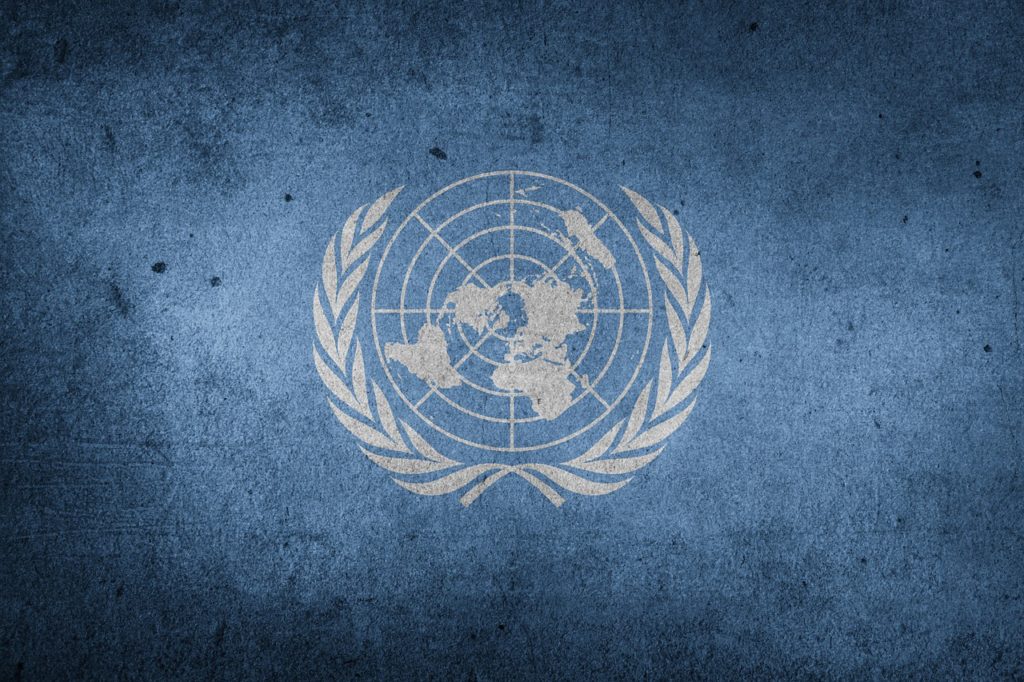The last two decades have witnessed a growing clash between European secularism and rising Islamic immigration, which has brought an increasingly aggressive Islamic voice to the politics and culture of the continent. This surge poses a double threat to Christian religious freedom in Europe and North America.
The first threat is that Islamic (Sharia) law restricts the ability of Christians to evangelize or even speak critically on the topic of Islam. The second is that radical secularism’s counteroffensive to Islam proposes to eradicate all religious distinctions in favor of the primacy of the state’s interest in assimilated citizens. This, too, has produced increasing limitations on the free exercise of religion in Europe—including Christian religious freedom.
If either of these versions of intolerance ultimately wins the battle for Europe, American courts will probably give credence to their diminished views of religious freedom. In the United States, we’re already seeing Canada’s version of this clash play out, as that country’s growing statism forces all religious faiths to conform to the lowest common state-sanctioned secular denominator.
We also know the secular left has worked diligently to promote the globalization of law and cultural values and to centralize international governance through institutions like the United Nations, the UN Human Rights Council, the European Union, the Council of Europe, the Organization of American States, and the European Court of Human Rights. These institutions have been able to remove governance from—and overcome limitations and constraints imposed by—individual nations’ constitutions, legislative bodies, and democratic processes.
Start your day with Public Discourse
Sign up and get our daily essays sent straight to your inbox.International Institutions Can Be Serious Threats—or Powerful Opportunities
As international courts and governing bodies are held less and less accountable to the constituents they purportedly serve, they enjoy an increasingly free hand in advancing a legal and political agenda never contemplated by the nations and peoples who gave rise to these international bodies in the first place. And these myriad international courts and legal bodies are not going away.
However, the existence of these international courts and bodies of international governance provides a huge opportunity—indeed a direct route—to reclaiming the legal system for religious freedom worldwide. In fact, we can use the very institutions the left has hijacked to impose their agenda on a largely averse-but-passive world. Indeed, perhaps the only means of turning back the threats to religious freedom and the right to live our traditional Judeo-Christian values is by establishing a dynamic, well-organized, and focused presence at these international courts and legislative bodies and then moving strategically to take them back.
To a considerable degree, of course, the current beleaguered state of religious freedom in the world is a direct result of the failure of those who love religious freedom to acknowledge and use the opportunities provided by these international institutions. To a great degree, we Christians have ourselves to blame for having stood by silently, leaving the radical left a clear field.
The International Planned Parenthood Federation serves as a good example. IPPF first gained consultative status with the United Nations Economic and Social Council in 1973. That means that it has been at the UN longer than 95 percent of the NGOs with consultative status today. The highly influential UN agency UNESCO allows only a few hundred organizations to be accredited with it, and IPPF is one of them. The Council of Europe maintains a similarly short list of accredited NGOs, and, again, IPPF is on it. It’s not surprising, then, that the UN Population Fund has an annual budget of around $1 billion and has set “reproductive rights” as one of its main goals. After all, the current chair of the fund’s advisory panel is the former director general of IPPF, while the vice chair is from the Planned Parenthood Association, Ghana. Look in any direction and you’ll see IPPF and many other organizations with similar aims.
Using Globalization to Advance Conservative Values
The international governing bodies have enormous power and reach. If engaged effectively, they can be leveraged to advance more conservative values at the local level.
For example, in May 2006, Colombia’s highest court decriminalized abortion in certain circumstances. The 650-page decision of the court was replete with references to international documents and the opinions of various UN bodies and agencies. Unfortunately, many citations to these documents were inaccurate—inserted by UN activists advancing an abortion agenda. Yet no one voiced a pro-life perspective on the case in either Colombia or at the UN. No one called out these abortion advocates for their erroneous interpretations of documents and treaties.
Similar stories could be told throughout much of Latin America—and, indeed, the rest of the world. Several years ago, in Austria, the government looked certain to introduce highly controversial “non-discrimination” legislation that would drastically undermine religious freedom, apparently because “the UN told us to.” Only after a concerted effort from various civil society actors, including ADF International, was the threatening legislation dropped.
The lesson is clear: when those defending religious freedom engage, we can win. Despite conceding crucial legal and political ground for decades to organizations such as IPPF, opportunities abound to gain that ground back and make an enormous impact within these international and regional organizations.
Returning to Founding Visions
The founding charters for institutions like the UN, EU, OSCE, COE, and ECHR expressly advance and endorse core Judeo-Christian values such as religious freedom, life, and the family. Only by twisting and misinterpreting these provisions over time—and by Christians standing silently by for many years—have radical secularists been allowed to get away with such mischief. For example, the UN’s Universal Declaration of Human Rights states:
– “Everyone has the right to freedom of thought, conscience and religion; this right includes freedom to change his religion or belief, and freedom, either alone or in community with others and in public or private, to manifest his religion or belief in teaching, practice, worship and observance.”
– “Everyone has the right to freedom of opinion and expression; this right includes freedom to hold opinions without interference and to seek, receive and impart information and ideas through any media and regardless of frontiers.”
– “Everyone has the right to life [and] liberty . . . of the person.”
– “Men and women of full age, without any limitation due to race, nationality or religion, have the right to marry and to found a family.”
– “The family is the natural and fundamental group unit of society and is entitled to protection by society and the State.”
– “Parents have a prior right to choose the kind of education that shall be given to their children.”
The European Convention on Human Rights also explicitly guarantees freedom of religion, the right to life, and protections for the family. It proclaims: “Everyone has the right to freedom of thought, conscience and religion; this right includes freedom to change his religion or belief and freedom, either alone or in community with others and in public or private, to manifest his religion or belief, in worship, teaching, practice and observance.”
Explicit as those statements are, the lack of Christian engagement at these important bodies has allowed the extreme left to twist these instruments and use them as cudgels to crush religious freedom and rights of conscience.
Defending Freedom
That apathy and disadvantage, however, are now at an end. In recent years, ADF International has proven that a small, determined group of attorneys can attain victories and accomplishments significantly out of proportion to their numbers.
By investing in the manpower necessary to fully engage at each of the key international institutions of law and governance, proponents of religious freedom from various faiths can effectively make use of the very bodies the left has employed to coalesce world governance around its own worldview. We can actually retrieve these bodies and advance their original values and objectives.
Until recently, no conservative organization or coalition of organizations has ever had the capacity or the manpower to accomplish this goal, but the stunning Trump presidential victory in the United States creates new possibilities. The extreme overreach by the radical left is glaring to all who actually read, say, the UN’s charter. Suddenly, it’s becoming clear to more and more people that lying about and distorting the contents of such documents has enabled the left to achieve such global success.
No one has demonstrated the ability, the means, or the courage to challenge the anti-life, anti-family, anti-freedom agenda until now. But in these changing times, an alliance of organizations committed to saving these ideals and the lives they protect is using the legal foundations of these international bodies to defend religious freedom, life, and the family.
With focus, planning, and determination, recovering these bodies of international legal governance is within our grasp. This can be accomplished strategically, one venue at a time. In time—and certainly within our lifetimes—we can build the critical mass necessary to turn these institutions back to the high, enduring, life-affirming purposes for which they were created.













